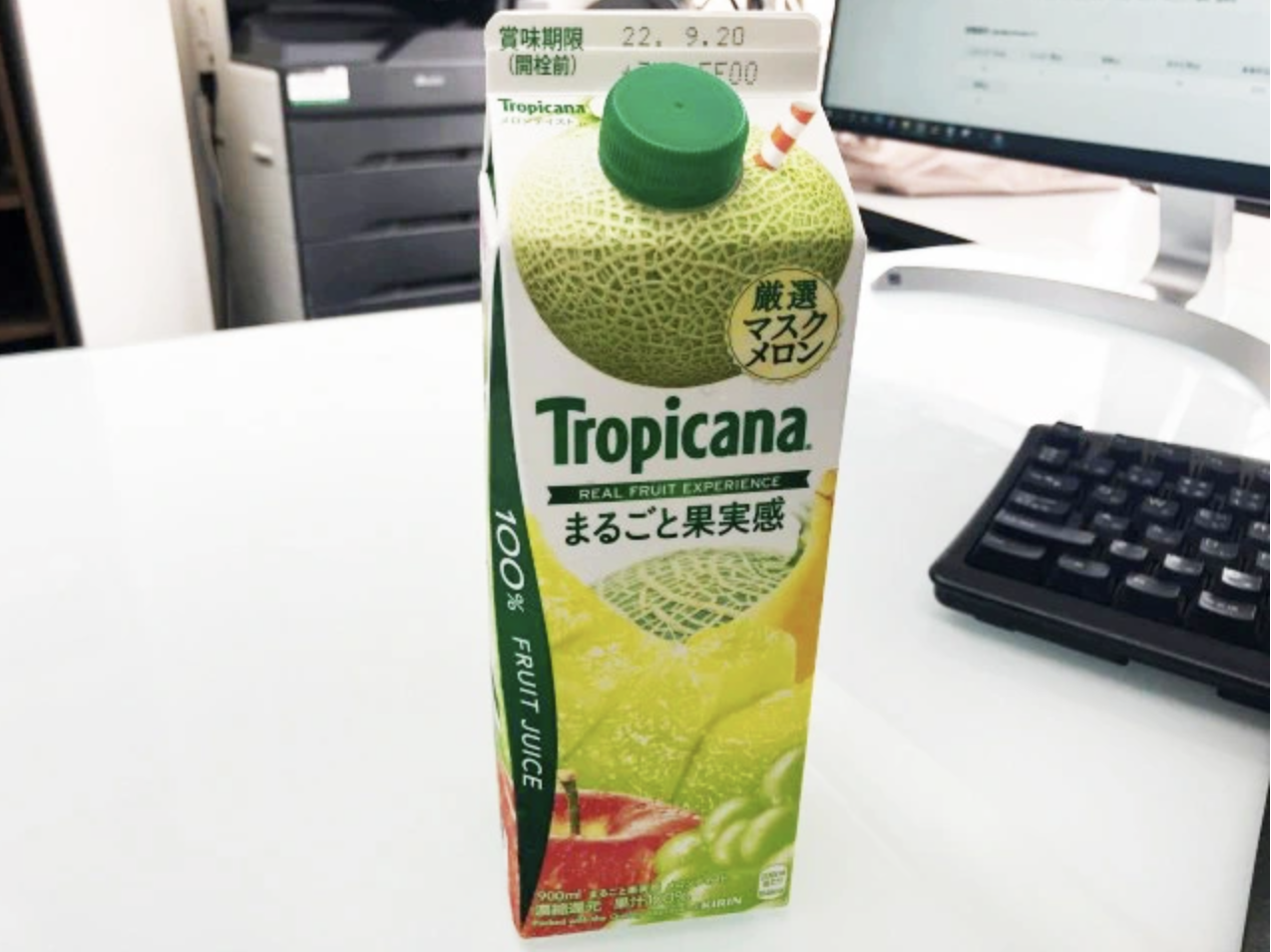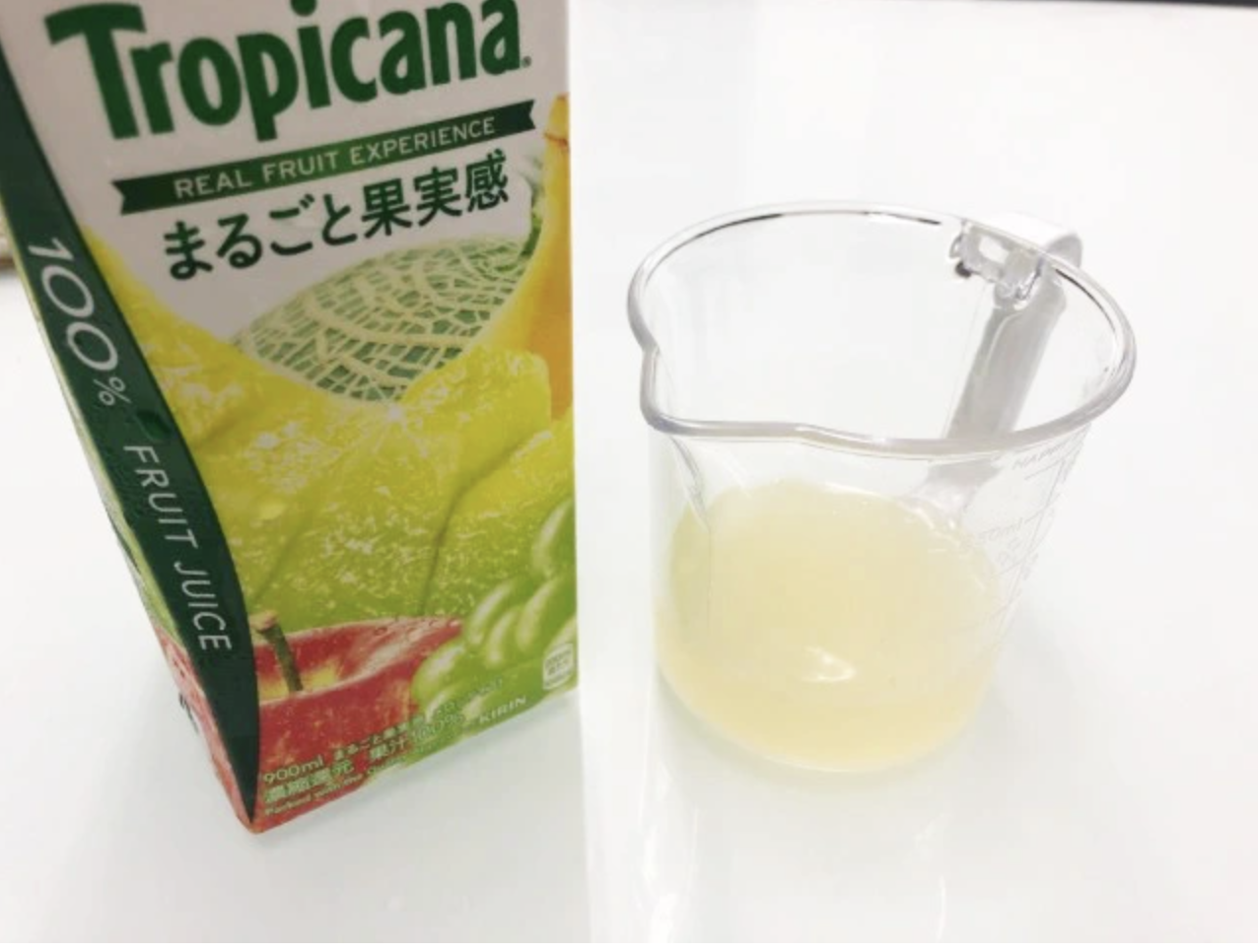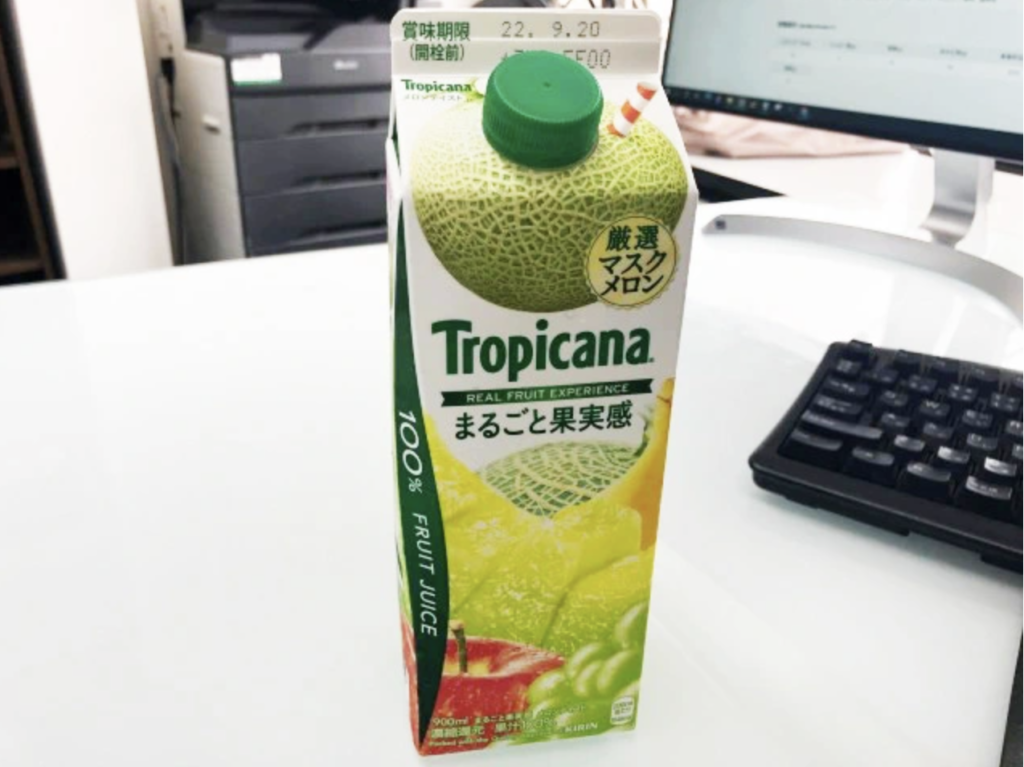[ad_1]
In September of last year, the popular juice brand Tropicana was put in the spotlight in Japan over a considerable bit of deceptive marketing. The matter was Tropicana 100% Whole Fruit Melon Taste, which you might assume is made of 100% melon by the name. In fact, you might even assume that from the carton on which only melon is clearly visible and phrases such as “100% MELON TASTE” are printed.
However, upon closer inspection, this product contains only two percent actual melon juice blended in with 98 percent apple, grape, and banana juices. With this realization, you might then notice that there actually is a slice of apple, a bunch of grapes, and a banana on the carton, albeit fairly well camouflaged among the melon.
▼ A news report from last year showing the old package design to people on the street who unanimously agree that it looks like only melon and is pretty “sketchy” overall.
By the time news of this broke, the Consumer Affairs Agency of Japan had already warned Tropicana’s Japanese licensee Kirin Beverage to stop the misleading packages. They complied and redesigned cartons with more prominently displayed apple and grapes and by replacing phrases like “100% MELON TASTE” with “100% FRUIT JUICE.”
▼ The redesigned carton with the apple and grapes more visible

However, it appears that the Consumer Affairs Agency wasn’t quite done with Kirin and on Jan 18 ordered the beverage maker to pay a fine of 19,150,000 yen for violating the Act against Unjustifiable Premiums and Misleading Representations.
The figure was arrived at by calculating the sales of the product between June 2020 and April 2022, when the original package was in use. According to the Truth-in-Advertising Law, the fine should be three percent of that amount, or to put it another way, one percent more than the amount of actual melon juice in the drink.
When news of the fine was reported, online comments were surprised that Kirin had even gotten away with it for as long as they did. On the other hand, some comments came out in defense of the drink, saying that consumers should be more aware of what they’re buying.
“Wha?! I used to buy that a lot.”
“To be fair, they never did actually say ‘100% melon juice.’”
“At least give us like 50 percent…”
“It looks delicious, but this isn’t right.”
“It was written properly on the ingredient list, wasn’t it? It’s the people’s fault for not checking what they drink.”
“I always assumed major corporations like that were really cautious about this kind of stuff.”
“Pretty bold to try and sneak 98 percent of the juice past people.”
It is almost bizarre to be so misleading about something like this. Personally, I’d be more likely to drink the stuff had they never pushed the melon taste so much and been honest about it being a blend. In fact, I tried some last September when news broke and quite liked it, mostly because the melon taste was present but not overwhelming.

It almost seemed like Kirin was doing more harm than good with the misleading labeling. But regardless, it’s good to know that the government is working to keep companies honest so we can be more confident about what we buy.
Sources: Mainichi Shimbun, Hachima Kiko
Photos ©SoraNews24
Read more stories from SoraNews24.
— McDonald’s officially reprimanded by Japanese government for misleading “roast beef” ads
— Melon bread: everyone’s favorite Japanese snack is actually one of the worst things you can eat
— Starbucks Japan’s Melon Frappuccino: One of the most memorable drinks in recent history
© SoraNews24
[ad_2]
Source link

